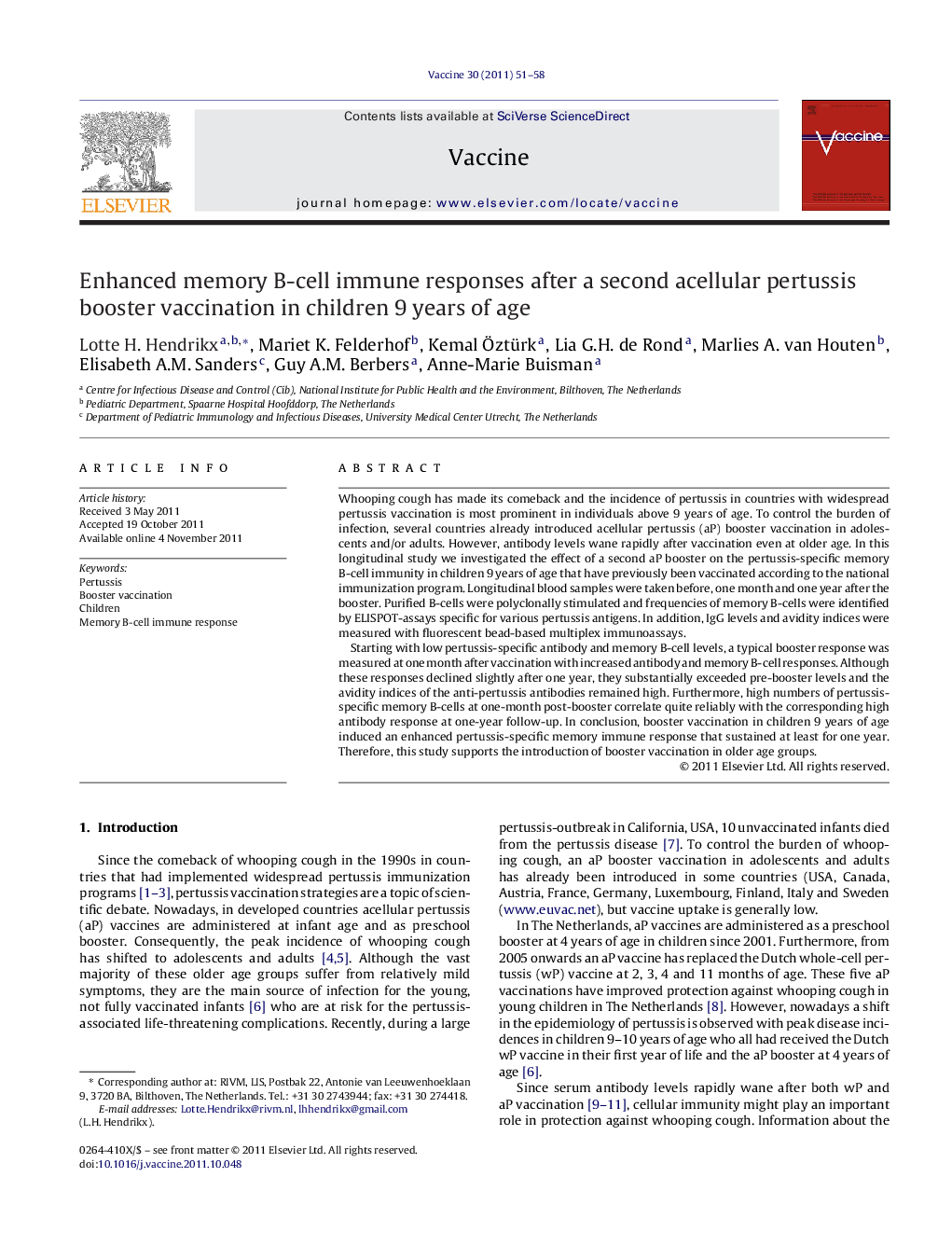| Article ID | Journal | Published Year | Pages | File Type |
|---|---|---|---|---|
| 2402859 | Vaccine | 2011 | 8 Pages |
Whooping cough has made its comeback and the incidence of pertussis in countries with widespread pertussis vaccination is most prominent in individuals above 9 years of age. To control the burden of infection, several countries already introduced acellular pertussis (aP) booster vaccination in adolescents and/or adults. However, antibody levels wane rapidly after vaccination even at older age. In this longitudinal study we investigated the effect of a second aP booster on the pertussis-specific memory B-cell immunity in children 9 years of age that have previously been vaccinated according to the national immunization program. Longitudinal blood samples were taken before, one month and one year after the booster. Purified B-cells were polyclonally stimulated and frequencies of memory B-cells were identified by ELISPOT-assays specific for various pertussis antigens. In addition, IgG levels and avidity indices were measured with fluorescent bead-based multiplex immunoassays.Starting with low pertussis-specific antibody and memory B-cell levels, a typical booster response was measured at one month after vaccination with increased antibody and memory B-cell responses. Although these responses declined slightly after one year, they substantially exceeded pre-booster levels and the avidity indices of the anti-pertussis antibodies remained high. Furthermore, high numbers of pertussis-specific memory B-cells at one-month post-booster correlate quite reliably with the corresponding high antibody response at one-year follow-up. In conclusion, booster vaccination in children 9 years of age induced an enhanced pertussis-specific memory immune response that sustained at least for one year. Therefore, this study supports the introduction of booster vaccination in older age groups.
